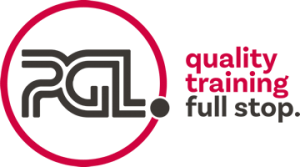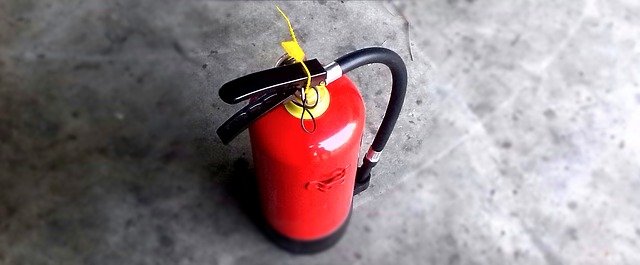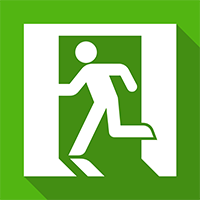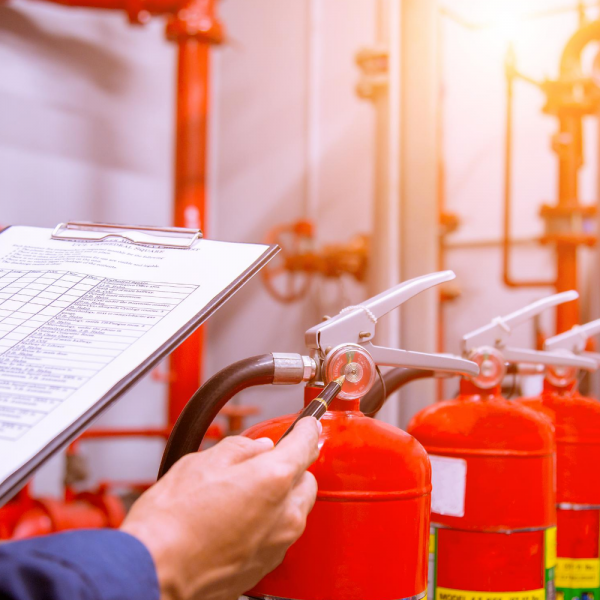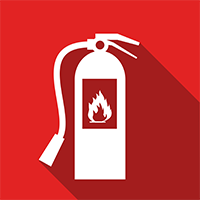What Type of Fire Extinguisher Do You Need?
What is a fire extinguisher?
- Let’s start with the basics: fire extinguishers burn small fires in an effort to prevent them from spreading. Different substances are used to extinguish fires in different types of extinguishers. A fire extinguisher’s effectiveness will depend on the source of the fire and the environment where the fire broke out.
- Small fires should be extinguished with fire extinguishers. An individual attempting to put out larger fires with only an extinguisher is in a position of extreme risk, and may even make things worse. Whenever a fire is out of control or spreading quickly, the priority should be evacuating the building or contacting the fire brigade to deal with the fire.
What are the 5 types of fire extinguisher?
- There are five major types of extinguishers, each of which uses a different substance to extinguish a fire:
- Water
- Foam
- CO2 (Carbon Dioxide)
- Wet Chemical
- Dry-Powder
There are specific types of fire extinguishers for each type of fire. It is possible to make the fire worse by using the wrong type of extinguisher. The need to have all the correct types of fire extinguishers for every building is therefore essential.
What are the 6 classes of fire?
- We categorize fires into six different classes to help you choose the right extinguisher:
- Class A – Ordinary combustibles (e.g. solid materials such as wood, paper, plastic)
- Class B – Flammable liquids (e.g. oil, grease, petrol)
- Class C – Flammable gases (e.g. methane, propane)
- Class D – Flammable metals (e.g. titanium, magnesium)
- Class E – Electronic equipment
- Class F – Cooking oils
For an idea of which type of extinguisher to use, you can refer to the table on the right:
Who is responsible for using a fire extinguisher?
- The ability to use a fire extinguisher does not require any specific training, but it is advised that you only use an extinguisher if you have received some form of training. The use of the wrong type of extinguisher, or the incorrect use of the equipment, can actually lead to serious injury or death.
- Take our Fire Extinguisher Training course if you want to know how to effectively use a fire extinguisher. The course is designed for anyone who wants to learn how to use this equipment effectively and safely. We also offer much of this content as part of our Fire Safety Awareness course, which provides an introduction to fire safety, including fire extinguisher theory.
- Despite all workers’ responsibilities when it comes to fire safety, workplaces are required by law to have a Fire Marshal on site. A fire marshal’s responsibilities include putting emergency procedures in place, carrying out risk assessments, ensuring the correct extinguishers are available. and much more. To fulfil this role, it is essential for this staff member to have completed some form of fire marshal training.
How do water fire extinguishers work?
- Among the most common types of fire extinguishers is the water extinguisher. Water is sprayed directly on a fire using these as the name implies. The water reduces the heat and extinguishes the fire by cooling it. However, if used on the wrong kind of fire, water extinguishers can worsen the situation. Water extinguishers should only be used on dry fires and non-electrical fires because other types of fires can cause dangerous chemical reactions.
What fire extinguisher should I use for an electrical fire?
- Use a dry powder or CO2 extinguisher to extinguish an electrical fire. It is not advisable to use liquid extinguishers, such as water or foam extinguishers. Wetting electricity can produce extremely hazardous chemical reactions. There is a risk of the fire spreading, becoming more volatile, or even igniting additional fires.
- Electrical fires can be extinguished with CO2 and dry powder extinguishers since they do not contain water. By emitting carbon dioxide, CO2 extinguishers prevent fires from spreading. A dry powder extinguisher coats the fire in a thin layer of dust, which interrupts chemical reactions and prevents oxygen from feeding the fire.
What fire extinguisher should not be used in confined spaces?
- CO2 extinguishers can be extremely helpful in battling electrical fires, but they also come with a number of risks. If too much CO2 is sprayed, it can prevent people from breathing, potentially resulting in asphyxiation. Condensed spaces are especially vulnerable to this. As a result of this risk, dry powder extinguishers should be used in case of an electrical fire in a confined space.
Get Your Training Done with PGL Midlands
- What can PGL do for your training needs? Visit our online course index to view our complete list of courses, NVQs, and more! Our team is also available by phone if you call 0121 240 0375 – You can also send us an email at info@pglmidlands.com.
